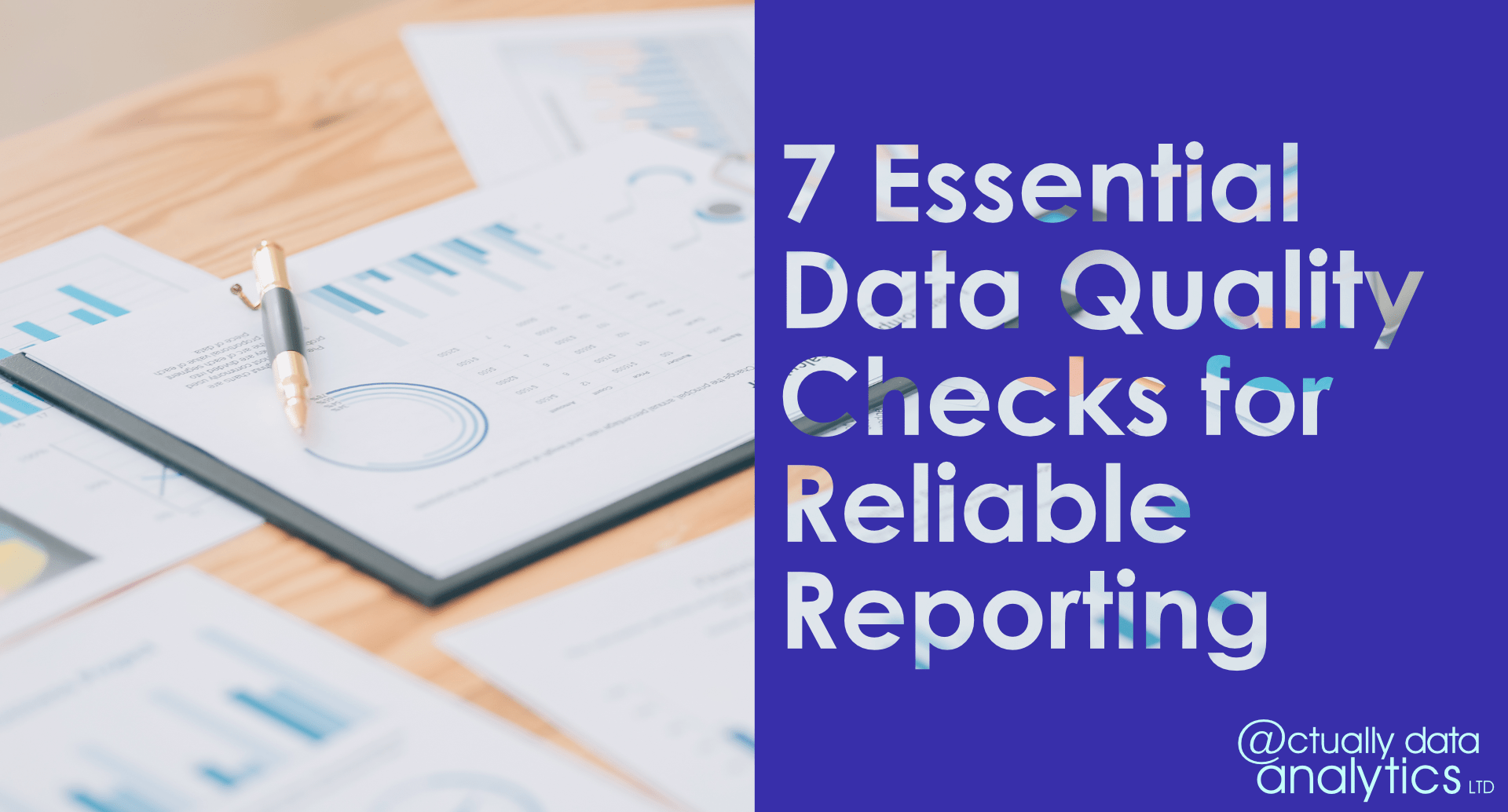You’ve spent hours building the perfect dashboard. The colours pop, the charts are clear, the metrics look spot‑on. You hit ‘share’ with a little burst of pride… and then the questions start.
“That number can’t be right, can it?”
“Hang on, my report says something different.”
“Where did you get that from?”
Sound familiar? Poor data quality can turn your hard work into a minefield of mistrust. It’s frustrating, demoralising, and ultimately damaging, because if people stop trusting the numbers, they stop acting on them.
The truth is simple: if your data isn’t right, your reports won’t be right. In the third sector, this can mean wasted time, misdirected effort, and missed opportunities to make a meaningful impact.
The good news? You don’t need an army of analysts or expensive software to make a difference. By incorporating a few practical data quality checks into your regular routines, you can prevent small errors from escalating and ensure your reports are a source of clarity, not confusion.
Why Data Quality Matters for Reporting
Data is the fuel for your reporting engine. But like any engine, the output is only as good as the input. This is the “garbage in, garbage out” principle in action.
Poor data quality can lead to:
Wrong decisions
You act on bad information and waste precious resources.
Wasted time
Staff spend hours double checking or re running reports.
Loss of confidence
Once people doubt the numbers, it’s hard to win them back.
The 7 Data Quality Checks
Here’s our essential shortlist for making sure your reporting is built on solid ground.
Completeness – Are key fields populated?
If critical information is missing, your reporting will be patchy. Missing campaign sources, postcodes, or gift dates can break your segmentation, skew your trends, or even make income look like it’s dropped when it hasn’t.
Tip: Run a quick report on key mandatory fields and see what’s missing — you might be surprised.
Accuracy – Do the values make sense?
It’s one thing to have data in the field; it’s another for that data to be correct. A donation showing £5,000 instead of £50 might inflate your totals and cause some very awkward conversations.
Tip: Spot‑check recent entries, especially high‑value or unusual records.
Consistency – Are formats and naming standardised?
Supporter events shouldn’t be “London Marathon” in one place and “Ldn Mara” or “LM2024” in another. Inconsistent naming makes analysis harder and risks double counting.
Tip: Use drop-downs or look-ups in your CRM wherever possible.
Validity – Do values fall within expected ranges?
Birth dates in 1890. Gift Aid claims before Gift Aid existed. Supporter sign-up dates in the future. If it doesn’t make sense in real life, it shouldn’t be in your database.
Tip: Build simple validation rules into your CRM to catch impossible entries at the point of input.
Uniqueness – Is duplication under control?
Duplicates are the silent killer of data quality. Not only can they inflate supporter counts, they can also lead to doubled communications — not a great look for donor care.
Tip: Schedule regular de‑duplication runs and set clear rules for merging records.
Timeliness – Is data up to date?
Even perfect data loses value if it’s out of date. Stale contact details, lapsed Gift Aid declarations, and old event participation records can all trip you up.
Tip: If you integrate multiple systems, check that synchronisation is running regularly and correctly.
Relevance – Are you collecting what you actually need?
It’s tempting to collect everything “just in case”. But too much irrelevant data clutters your database and distracts from what matters.
Tip: Review your forms and imports — if you never use a field, consider dropping it.
How to Implement These Checks
You don’t need to check everything every day. Start with small, regular habits:
Manual spot checks
Quick reviews of recent records to catch obvious errors.
Automated validation
Rules in your CRM that stop bad data at the point of entry.
Embedded workflows
Build quality checks into your import routines and integration processes.
If you’re a small team, pick one check to focus on each month. Over time, you’ll cover all the bases without feeling overwhelmed.
Charity‑Specific Considerations
Charities face some unique challenges when it comes to data quality:
Volunteer data entry
Well-meaning but inconsistent input.
Multiple system integrations
Event platforms, CRMs, donation forms… each with their own quirks.
Event and campaign data quirks
Unusual supporter journeys that don’t fit neatly into standard fields.
Acknowledging these realities means designing checks that are realistic and sustainable
From Checks to Confidence
Data quality isn’t glamorous. It’s not the shiny dashboard or the clever algorithm, but it’s the foundation on which all good reporting is built.
The important thing is to start small. Pick one of the seven checks and make it a regular habit. Once you’ve got that in place, move to the next. Before long, you’ll have a culture of quality that gives your team — and your leadership — confidence in the numbers they’re using to make decisions.
At Actually Data Analytics, we help charities build this kind of confidence into their reporting. If you’d like to explore how to make your reporting not just beautiful, but trusted, let’s have a chat.





